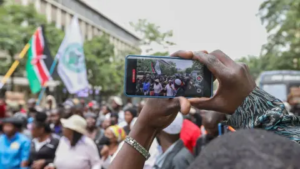Last Friday I participated in the popular early morning TV show “Muongozo,” hosted by the respected Debarl Inea, and it was a profoundly engaging experience. The questions he asked were thought-provoking, and as I responded alongside my colleagues, it became clear that the issues we face as a nation are complex and multifaceted. Today I choose to distill my responses during the TV show into a brief narrative that addresses the critical challenges facing Kenya today and proposes actionable solutions.
Firstly, we must acknowledge the generational houses that define our nation. The House of Traditionalists, from the Greatest Generation (born 1901–1927), laid the foundational values and structures post-independence. The House of Boomers (born 1946–1964), growing up amidst economic expansion and social upheaval, advanced technology, and education. Generation X, or the House of X (born 1965–1980), bridged the pre-digital and digital eras, integrating new technologies into everyday life. Finally, the combined House of Y (born 1981–1996) and Z (born 1997–2012), comprising Millennials and Generation Z, are digital natives who champion social justice, environmental sustainability, and innovation.
In my opinion, these four generational houses interact with our four political categories, revealing diverse motivations and perspectives. Some seek great governance for posterity, focused on transparency and sustainability. Others challenge President Ruto’s legitimacy due to perceived electoral irregularities. Another group views leadership as a means for personal or community gain. Finally, some are staunch Ruto supporters, tied to him for personal or economic survival.
Secondly, the topical issues in Kenya today highlight the disconnect between leadership and the youthful population. The median age in Kenya is 19.6 years, yet my findings are that the average age of our leaders is between 50–60 years. This generational disconnect fuels feelings of alienation and demands for change, as evidenced by the recent demonstrations.
The economic challenges leading to the uncomfortable high cost of living we face are multifaceted. Painfully, economic mismanagement has historically favored short-term gains over long-term stability, relying heavily on external borrowing without robust plans for diversification. Corruption remains pervasive, undermining trust and hindering development, while inequitable development has left rural areas lagging urban centers.
Thirdly, we must address these issues with comprehensive solutions. Economic reforms are crucial. We need to diversify our economy by investing in technology, manufacturing, and creative industries. We must prioritize fiscal responsibility, managing public debt and ensuring sustainable growth. Tax reform should simplify the system, broaden the base, and reduce the burden on essential goods.
Anti-corruption measures are equally important. We need to strengthen institutions to empower independent anti-corruption agencies and enhance transparency through e‑governance. Promoting public accountability by making all government contracts and expenditures publicly accessible is vital.
Inclusive development is essential for all regions to benefit. We should focus on equitable resource allocation in infrastructure, healthcare, and education in underserved areas. Youth engagement is crucial, with initiatives like youth councils, internships, and civic education to involve the younger generation in governance and policy-making.
Fourthly, we need to recognize that the issues we face today are the result of cumulative failures over time. The rains started beating us from far. It is not solely about President Ruto; it is about millions of small problems that we neglected. For example, Kenya’s standards for honey allow the addition of sugar, leading to health issues and undermining the potential of rural farmers. More fake honey is imported because it fits our standards, while genuine local honey struggles to compete.
To address these challenges, I propose my ICE approach—Innovation, Collaboration, and Empowerment. By fostering innovation, we can develop sustainable solutions tailored to our unique needs. Collaboration between government, private sector, and civil society will ensure that efforts are unified and effective. Empowerment, especially of the youth and marginalized communities, will drive inclusive growth and development.
Ultimately Kenya stands at a crossroads. By acknowledging our generational houses and political categories, addressing the widening age gap, and implementing robust solutions, we can pave the way for a prosperous future. “Tuanguke nayo” ! Think green, act green!



